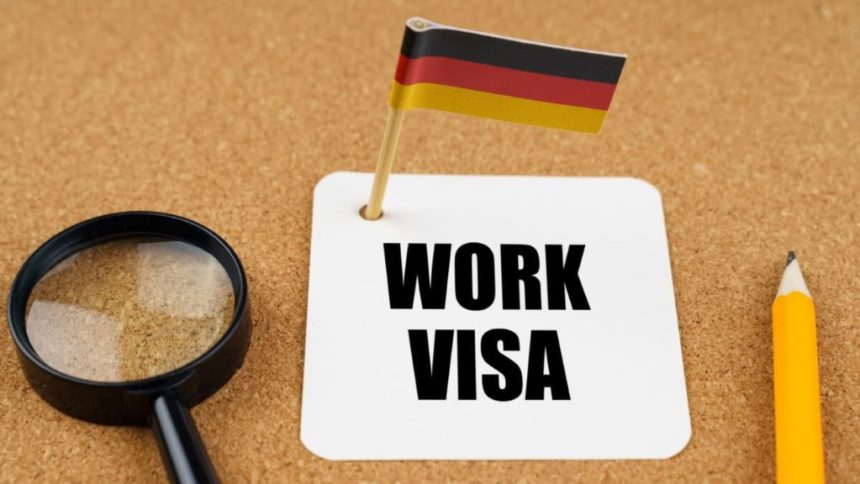Half Work Visas Went to Skilled Workers
Over 80,000 work visas issued in the first half of this year for individuals seeking to work in Germany.
About half of these visas, over 40,000, were for skilled workers.
For comparison, around 37,000 skilled worker visas were issued in the same period last year.
In 2023, the ministry issued more than 157,000 work visas, with 79,000 going to skilled workers.
About the “Opportunity Card”
The “Opportunity Card,” introduced on June 1, has not yet significantly impacted the number of migrant workers, with around 200 visas issued under this legal basis so far.
The Opportunity Card requires at least two years of recognized vocational training or a university degree relevant to the practical field.
Along with language skills in German or English.
Applicants earn points based on language proficiency, professional experience, age, and ties to Germany.

Germany has implemented a skilled labor immigration law since 2020 to boost the flow of qualified workers.
The first part of the law’s reform took effect in November 2023.
Easing the process for obtaining the EU Blue Card and recruiting recognized skilled workers.
Annual salary of at least €40,770
Since March, skilled workers with a university degree and professional experience can enter and work in Germany.
Without prior recognition of their qualifications, provided they have a job offer with an annual salary of at least €40,770.
If the employer adheres to collective wage agreements, the salary must comply with the collective agreement.
From June 1, opportunities for workers from the Western Balkans to come to Germany for work have also been expanded.
Skilled worker visas are prioritized, and the visa process is expected to be fully digital by January 1, 2025.

If you are Applying to work visa in Germany, follow these steps:
- Secure a job offer from a German employer.
This is a crucial first step as you need a job offer to apply for a work visa. - Determine if you need a visa to work in Germany.
Citizens of EU/EEA countries and Switzerland do not need a visa.
However, citizens of other countries will need to apply for a work visa. - Gather all necessary documents, which typically include:
- A valid passport
- A job offer or employment contract
- Proof of qualifications (e.g., degrees, certificates)
- Proof of professional experience
- Proof of financial means
- Health insurance coverage
- Completed visa application form
- Passport-sized photos
-
Dubai sets new record with 9.31 million visitors in H1 2024
The exceptional and strong performance of Dubai’s tourism sector reflects the vision of His Highness Sheikh Mohammed bin Rashid to enhance its position as a leading global city for business and entertainment in support… pic.twitter.com/ATGxFxsWEG
— UAE Voice (@uae_voiceeng) July 30, 2024
- Apply for the visa at the German embassy or consulate in your home country.
You will need to schedule an appointment for a visa interview. - Attend scheduled interview and submit your documents.
Be prepared to answer questions about your job, qualifications, and plans in Germany. - Pay the required visa fee.
The work visa fee amount may vary depending on your nationality and the type of visa you are applying for. - Wait for your visa application to be processed.
Processing times can vary, so it’s advisable to apply well in advance of your planned travel date. - Once your visa is approved, you will receive it in your passport.
You can then travel to Germany and start working.
Would you like more details on any specific step or have any other questions about the process ?





